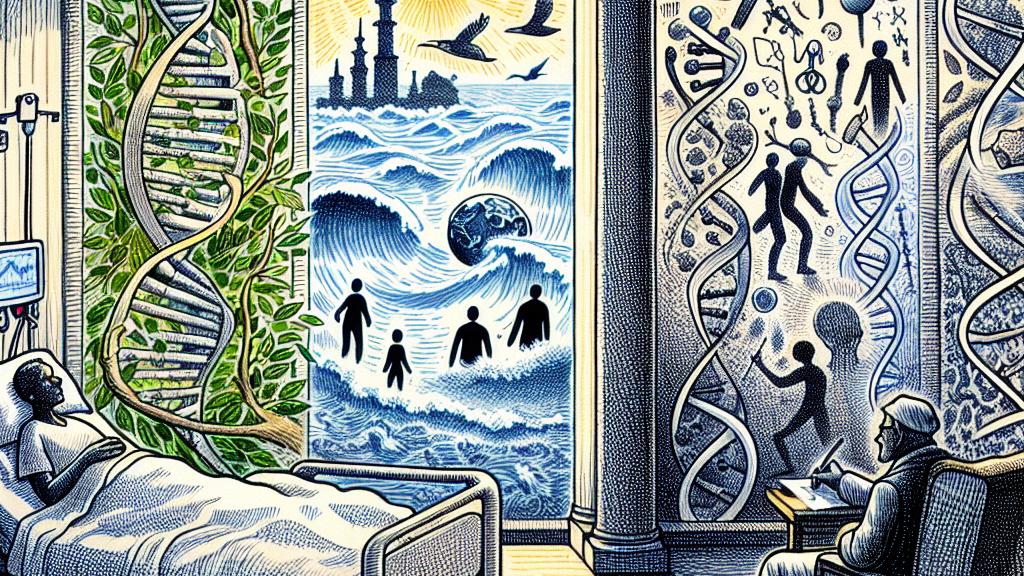Exploring Science and Privacy: A Comprehensive Overview
Overview
- An engaging review of transformative science books that dive into our relationship with nature and the fabric of humanity.
- An insightful look into the necessity of comprehensive privacy policies in our interconnected digital world.
- A thorough analysis of the multifaceted challenges linked to social diversity in biological research.

Science Book Insights
In his latest review, Andrew Robinson brilliantly curates an impressive array of science books that not only enlighten readers but also provoke deep reflection. For example, Kathy Willis’s 'Good Nature' evolves into an intriguing exploration of how our surroundings impact our health and happiness. Imagine this: patients recovering in hospitals with views of lush greenery tend to heal faster compared to those stuck looking at bland brick walls. Such vivid observations resonate well and powerfully underscore Willis's point that our survival is intertwined with the natural world. Meanwhile, Gerard Toal's 'Oceans Rise Empires Fall' cleverly incorporates a lyric from the popular musical Hamilton to illustrate the geopolitical ramifications of climate change. By arguing that the U.S. military, as the largest consumer of hydrocarbons, could face unprecedented challenges, Toal suggests that rising waters might indeed topple empires—an alarming but crucial revelation. Adding yet another dimension, Jonathan Marks's 'Understanding Human Diversity' compellingly argues against the over-simplification of human identity through genetics alone. He illustrates poignant examples, such as how cultural practices—that have been handed down through generations—shape our behaviors and interactions, showing that our identity is as much about social learning as it is about our DNA.
Privacy in the Digital Era
Navigating the complexities of the digital age reveals that privacy has become one of our most pressing concerns. With unprecedented amounts of personal information shared online, the establishment of thorough, clear privacy policies is now essential—not just for compliance with laws like GDPR and CCPA, but for building trust with users. Picture a business that not only adheres to these regulations but goes above and beyond by being transparent about its data practices; it creates an environment of trust where users feel empowered and valued. Highlighting the necessity of clear communication, companies must explicitly state what data is collected, how it's utilized, and the rights users have regarding their information. This commitment to transparency not only satisfies legal obligations but fosters loyalty among customers, generating a relationship based on integrity and accountability—a win-win scenario in today’s competitive market.
The Complexity of Social Diversity in Research
Delving into the intricacies of social diversity in biological research, we uncover a realm of challenges and opportunities. Troy Duster compellingly argues that categories like race and ethnicity, while significant, often distract from the broader social factors that influence health outcomes. Consider this: when examining heart disease disparities, the interplay of social determinants—such as access to quality healthcare, education, and socioeconomic status—can often overshadow genetic factors. This leads us to a critical yet thought-provoking question: Why do we emphasize these social identifiers at the expense of a more holistic view? By expanding our focus to include both biological and social dimensions, researchers can enhance the relevance of their work, ultimately addressing health disparities more effectively. If we can view human variety as a spectrum encompassing biology and culture, we not only enrich our scientific understandings but also create pathways toward a more equitable healthcare system that respects and incorporates the diverse experiences of all individuals.

Loading...